Iran Guards Say They Seized Two More Vessels Smuggling Fuel
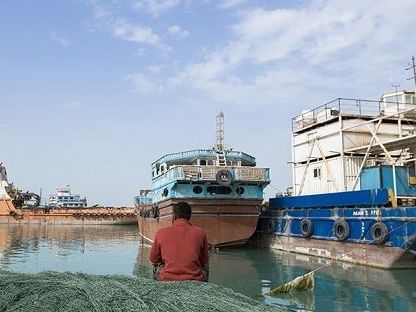
Iran's Revolutionary Guards say they seized two vessels in waters south of Iran, one carrying 250,000 liters of smuggled fuel and another loaded with 130,000 liters.

Iran's Revolutionary Guards say they seized two vessels in waters south of Iran, one carrying 250,000 liters of smuggled fuel and another loaded with 130,000 liters.
According to a report by ISNA, one of the vessels was seized in Persian Gulf waters near the Ameri Port in Bushehr province, and the other in Hormozgan province near the Jask Port on the Gulf of Oman on Friday.
Head of the Public Relations Department of the IRGC Navy Colonel Gholam-Hossein Hosseini said that the first ship's seven crew have been detained.
Last week the Guards had seized another vessel carrying 220,000 liters of smuggled fuel in the Persian Gulf and detained its crew of 11.
In recent weeks, IRGC naval units say they have managed to seize a total of 650,000 liters of smuggled fuel from the vessels they seized and handed them over to local judicial authorities.
The sizes of cargos involved indicate these were relatively small vessels transporting oil between local ports. Large tankers carry hundreds of thousands of barrels of oil.
Iran has boarded and seized foreign-flagged tankers in the past. One major incident occurred in January 2021 when the IRGC seized a Korean tanker for what seemed to be Iranian pressure on Seoul to release around $7 billion of funds frozen because of US sanctions.
The US Navy in the Persian Gulf region is known to have intervened in some instances to protect tankers.

A high-ranking official of Iran’s Judiciary says a total of 30 Iranian nationals are imprisoned abroad on charges of circumventing Washington’s sanctions.
Kazem Gharibabadi, a senior Judiciary official and secretary of the Iran’s High Council for Human Rights, added on Friday that government officials are following up on their cases.
He criticized what he called the Western “double standard” approach on the issue of human rights, saying that “the number of Iranians who need human rights protections abroad is not small”.
“There are many examples in this regard, like the sham trial of [former Iranian judicial official] Hamid Nouri in Sweden, the violent mistreatment of a female Iranian asylum seeker by the Danish police in front of her child, and even Iranians being prosecuted under the pretext of circumventing US sanctions against Iran,” Gharibabadi said.
He stressed that “in some cases the follow-up process is lengthy and does not mean that we are abandoning them. We give various forms of human rights support.”
His remarks came as talk of a possible prisoner swap deals between Iran and the United States circulates in media especially since Iran freed British Iranian Nazanin Zaghari-Ratcliffe and Anoosheh Ashoori in exchange for the UK paying a four-decade-old £400m ($522 million) debt to Iran.
Following reports about the release of Iranian funds frozen by third countries in return for Tehran freeing Iranian-Americans it holds hostage, the US State Department denied “any breakthrough” in talks on the release of four US citizens.
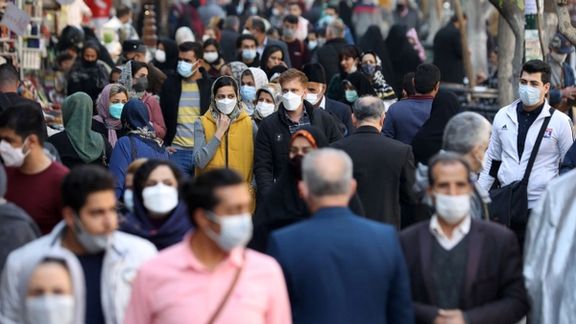
Politicians and the public are voicing concern over rising inflation in Iran while officials' promises to lower prices and tackle poverty prove to be hollow.
A deputy industry minister who promised on Wednesday to bring down prices overnight to their early March level was harshly mocked on social media, while some remembered President Ebrahim Raisi's promise in mid-March to end poverty within two weeks.
Hardline daily Jomhouri Eslami warned on Thursday that "Iran will be facing a difficult situation if wise decisions are not made to revive the 2015 nuclear deal" as a bid to lift the US sanctions that have paralyzed Iran's economy and made life difficult for ordinary people.
The daily further warned that delay in resuming talks currently suspended, is having damaging impact on Iran's economy. This comes while Iranian officials have been promising for months that negotiations are in their final stages and an economic breakthrough is on its way.
In the meantime, prices of essential commodities, cars, construction material, foodstuff and household goods have been constantly on the rise, particularly after the change of government in August 2021, the daily noted. “The situation is approaching a state of instability and there are concerns about an upcoming difficult situation if wise decisions are not made quickly."
On Wednesday, Amanghelich Shadmehr, an Iranian lawmaker from Gonbad Kavous criticized government officials for ignoring the economic problems and called on them to prevent an upcoming catastrophe, Aftab News website reported.

He said "Raisi's declared priority was solving the country's economic problems. Now the people's patience is running out. They are struggling to cope with the maximum pressure." Shadmehr added that "the economic burden on the people's shoulder are so heavy that that a new straw will break their back."
It is not clear if he intentionally used the phrase 'maximum pressure', which is how the former US administration labeled its sanctions on Iran.
The lawmaker further warned that people cannot tolerate any further taxe increases or unusual decisions to raise fuel prices. He suggested that the government should start fighting the dragon of corruption by preventing the activities of monopolies and dealers who contribute to inflation.
He said that many young Iranians have left the country looking for jobs abroad, adding that around 100,000 young men from the Golestan Province have left for other provinces and some of them have gone to Turkey to look for a job.
Meanwhile, an April 14 report on the conservative news website Tabnak pointed out the cost of housing for tenants has been climbing in an unusually fast tempo, warning that 8 million Iranians will be facing problems when they need to renew their rental contracts this summer.
Rents in Iran are usually renewed in the summer before the opening of schools in September.
The report added that the government has not been able to provide financial facilities for first-time home buyers and has also failed to set a limit for rent increases, which have take away a large parts of wage earners’ income.
This comes while the average rent in January showed a 50.9-percent rise compared to the same time in the previous winter.
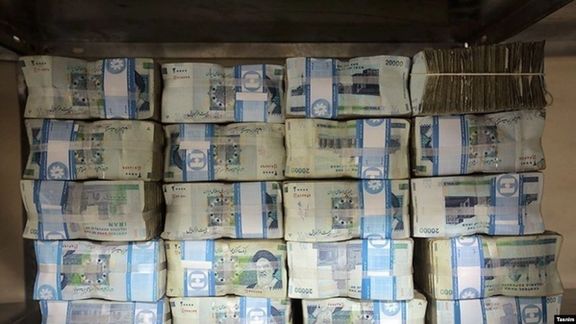
Iran will pay 1.5 million rials (less than $6) of cash handouts to 30 million citizens to help them during the Muslim fasting month of Ramadan as food prices keep rising.
The especial Ramadan handout that will be paid out Friday night is distinct from a monthly payment of less than $2 and covers about 60 million people.
The Ramadan handouts, which will total to about $180 million, suggest that authorities believe there are over 30 million people in the country who need the $6-cash handout.
The number of recipients and amount of the government’s handouts vary. For example, the cash handouts for the anniversary of the 1979 revolution was 1 million rials (less than $4) and was paid to 34 million people and the handout for the Iranian new year was 1.5 million rials (less than $6) but only 12 million Iranians received it.
The government is trying to increase the monthly cash handouts to $3-4 in the new Iranian year (from March 21) to compensate for the elimination of an $8 billion subsidy for food and medicine in its new budget.
A typical worker gets around $120 to $200 a month, while rents and other daily necessities have risen with the fall of the national currency, keeping pace with the value of the US dollar.
The current annual inflation rate hovers at around 40 percent.
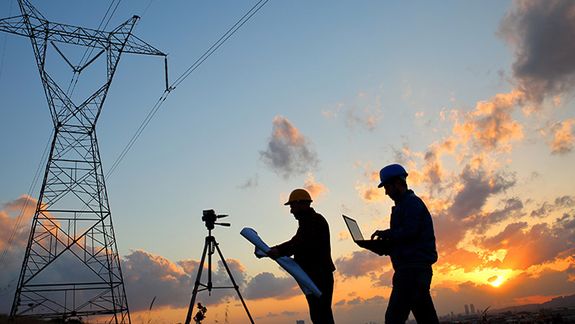
Iran added only 1.2 gigawatt (GW) to its power generation capacity last fiscal year despite a projected 3.5-GW growth plan, Energy Ministry reported April 13.
This is the third consecutive year that Iran fails to realize its annual electricity growth plan, falling behind consumption that is quickly increasing because of extremely low prices. The government in control of the energy sector provides up to $60 billion a year in this indirect subsidy to people and businesses.
Last summer - during peak demand season- Iran faced a huge electricity deficit and long-lasting power outages throughout the country.
It needs at least 5 to 7 percent electricity generation growth annually to address the increase in domestic demand.
Energy Ministry’s report indicates that Iran’s electricity exports declined by around 40% last year and its imports rose 5%.
Lack of investment in expanding power generation capacity and natural gas production are the main reasons behind the power shortage. Only the gas sector needs $40 billion to increase production and keep up with demand.
The lion share of power generation decline came from hydro-power plants, which experienced a 36% decline in power generation during last Iranian year due to severe droughts. The hydro-power plants generated only 15 terawatt-hours (TWh) of electricity during last fiscal year, plunging from 31 TWh in 2019.
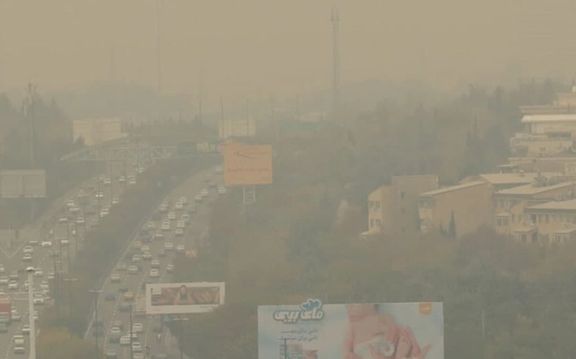
On the other hand, the country’s nuclear electricity generation has also declined from above 7.5 TWh in 2017 to only 4.4 TWh last year, or about 1.4% of the country’s total power generation.
Iran on average has 300 sunny days annually, but its renewable energy sector hasn’t been developed yet. Wind and solar power generation have only 0.5% share of total power generated domestically.
Thermal power plants had above 90% share in the country’s 324-TWh electricity generation last year, but regarding the huge gas deficit in cold months, they had to burn billions of liters of polluting mazut and diesel in power sector.
This can be deducted from the fact that the country became a net diesel importer this winter for the first time in more than a decade. But the government managed to prevent widespread power cuts, unlike the winter of 2020-2021 when large cities had serious power shortages, leading to protests.
Liquid fuels consumption in power sector has led to serious air pollution in big cities, and this was another reason to trigger protests in January 2021.
The Iranian government has not published the liquid fuels usage in power plants during last year (March 21-2021-March 20, 2022), but in 2020 it consumed 6 billion liters of mazut and 11 billion liters of diesel, or 60% more than in 2018.
Electricity generation in Iran needs around 220 million cubic meters of gas per day, while in January 2022 deliveries declined to 100 million cubic meters.
Iran’s gas production is gradually falling due to years of government inability to invest in gas fields and acquire Western technology.
Meanwhile, burning mazut, a heavy dirty fuel leads to extremely harmful air pollution. The global air quality monitoring company IQAir put Tehran as the most polluted city in the world on April 8, with a “very unhealthy” average real-time air quality index of 236.
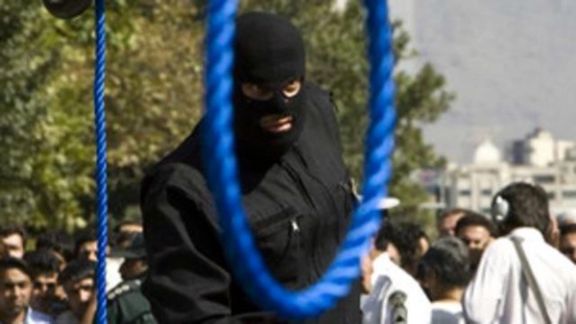
Iran's foreign ministry has called the US State Department's annual report on human rights in Iran "baseless" and said the US government is "addicted to lies".
"Publication of repetitive and baseless reports does not create any kind of legitimacy for such reports," Saeed Khatibzadeh said in a statement Thursday on the foreign ministry's website in reaction to the US State Department's 2021 report on human rights practices published Tuesday.
"The lie-addicted government of the US cannot be expected in any way to talk about truth and existing realities," he said while alleging that the United States ignores "systemic violation of human rights" in its own country and by its allies.
Khatibzadeh also said that the assassination of Iran's Revolutionary Guards (IRGC) Qods Force commander, Ghasem Soleimani in Baghdad by former US President Donald Trump's orders was an indication of the "terrorist nature of the United States".
The State Department's report, the second by the administration of President Joe Biden, said Iran violates human rights in various ways including unlawful or arbitrary killings by the government and its agents, executions for offences that do not meet the threshold of the "most serious crimes" such as drug-trafficking and financial corruption, and for acts not internationally recognized as crimes. "Death sentences were used as a weapon of repression against protesters, dissidents and ethnic minorities," the report said.
The report alleged that the Islamic Republic takes reprisal against individuals in other countries including killing, kidnapping, or violence and punishes family members for offenses allegedly committed by an individual.
"The government [in 2021] took few steps to identify, investigate, prosecute, and punish officials who committed human rights abuses or corruption. Impunity remained pervasive throughout all levels of the government and security forces," the report said.
"We continue to find ways both in public and in very discreet manners to support people who are trying to advance the human rights situation in Iran," said Lisa Peterson, acting assistant secretary of state for democracy, human rights and labor affairs at a special briefing on Tuesday. "We have also put into play a variety of sanctions tools."
In its most recent annual report, Amnesty International also rebuked the Islamic Republic for routinely repressing citizens and "systemic impunity" of officials for "past and ongoing crimes against humanity".
The global rights watchdog criticized Iran for torture and other ill-treatment of prisoners, use of the death penalty as a weapon of repression, and executions carried out after unfair trials as well as holding the country's June 2021 presidential elections "in a repressive environment'.
Iran routinely dismisses any criticism of its human rights record but has not allowed international rights groups and the United Nations special rapporteurs to visit the country.
The Biden administration released its first report on human rights practices in Iran on March 31 last year in which it alleged that violation of human rights was a policy in the Islamic Republic and the regime was also involved in widespread human rights violations in other countries in the Middle East.
Despite tough criticism of Iran’s record by successive US administrations, the issue of gross human rights violations hardly have a place in negotiations with Tehran over its nuclear program or aggressive policies in the region, although certain human rights sanctions are in place.